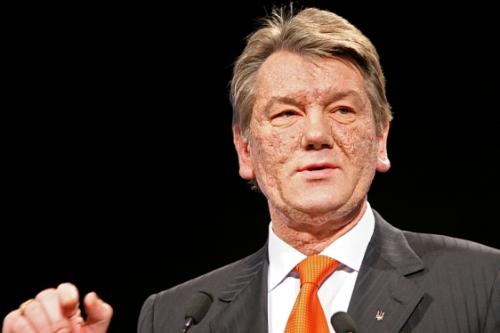 Ukrainian President Victor Yushchenko sees numerous similarities between his country’s situation and that of neighboring Georgia and believes his nation’s sovereignty and territorial integrity are at stake, he told an Atlantic Council luncheon in New York.
Ukrainian President Victor Yushchenko sees numerous similarities between his country’s situation and that of neighboring Georgia and believes his nation’s sovereignty and territorial integrity are at stake, he told an Atlantic Council luncheon in New York.
He says Western leaders face a choice: Integrate Ukraine into its institutions, including the EU and NATO, or watch it go back “into the swamp” of Russian domination.
He noted that his country declared its independence six times during the 20th century and lost five times. The reason, he insists, was that there were “never any international guarantees of territorial integrity.” The result was the loss of “tens of millions” of lives. Yushchenko declared that, in the absence of Western assurances, it would be “very hard” for Ukraine to make a “positive response” if Russia attempts to reassert dominance as it did in Georgia.
That invasion was not an isolated incident but rather a harbinger of things to come, Yushchenko believes. The whole Caucasus is at risk and the Black Sea region lacks “a sufficient and ample security balance.”
During his opening remarks, Yushchenko hinted that Russia was manipulating Ukraine’s domestic political situation. In response to a question from Atlantic Council president Fred Kempe, Yushchenko said that Prime Minister Yulia Tymoshenko had made a secret agreement between the Party of Regions and the Communist Party which was “not based on national interest” and that they are “afraid to make public” because “there’s nothing democratic about it.” He declared that Tymoshenko was not even welcome to visit Lviv, which he calls Ukraine’s “political capital” because the people see this alliance as “pure betrayal.”
While he understands Western concerns about Ukraine’s readiness for integration, especially given polls showing that a large number of Ukrainians oppose joining the EU and NATO, Yuschenko contends that similar problems existed with Bulgaria, the Czech Republic, and Poland not all that long ago and that they have managed integration nicely. Further, he noted, those countries were under the Soviet yoke a mere four decades, compared to more than seven for Ukraine. Given sixty plus years of Communist propaganda and disinformation about the Alliance, we shouldn’t be surprised that reluctance remains. That said, support for integration goes up by the day while opposition declines.
It’s not just in Ukraine’s interests, but that of the Western community, to see the values of democracy and market economics take firm root in eastern Europe. It is is, as Yuschenko notes, a “very important geopolitical issue” and one almost entirely in the hands of Western leaders.
James Joyner is managing editor of the Atlantic Council.

